Aug 23, 2022
WHAT IS MINDFULNESS
What is Mindfulness?
Mindfulness is the practice of bringing mindful awareness to what’s happening in the present moment, without judgement.
We tend to spend a lot of time caught up in thoughts about what has happened in the past, or what might happen in the future. By practicing Mindfulness, we can learn to differentiate between our direct experience of the present moment and our thinking mind.
It is a great way to build resilience for when things get stressful as it involves developing a better understanding of how our minds respond to the situations we face.
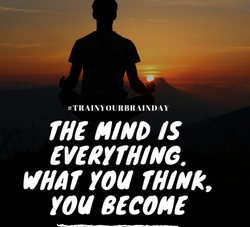
What is the meaning of "The Mind is everything. What you think you become"?
It means that your mind is very powerful.
If you think that you can become successful and TRY then you will become successful. If you think you are failure and then you will become a failure.
Your thoughts about yourself in the past is what made you into the way you are right now and the thoughts you have now will shape you into the person who you shall become in the future.
If you dont like something about yourself, then understand what the caused and change it so that you will become what you want to be in future.
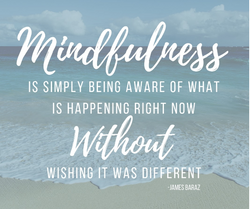
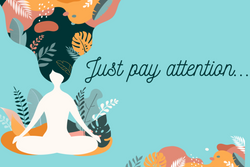
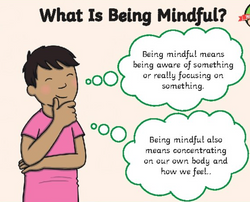
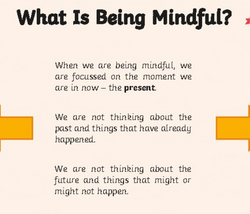
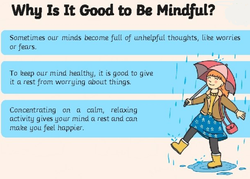
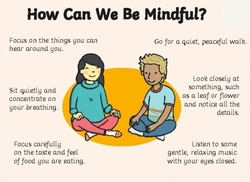
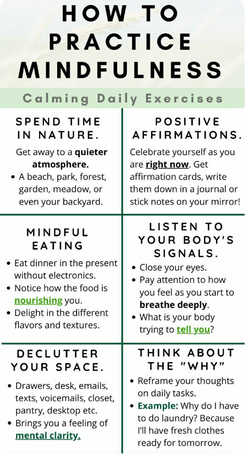
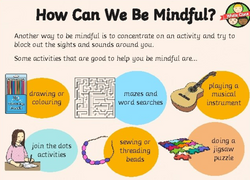
6 Mindfulness Exercises You Can Try Today
1.Mindful Breathing
This exercise can be done standing up or sitting down, and pretty much anywhere at any time.
Either way, all you have to do is be still and focus on your breath for just one minute.
Let go of your thoughts. Let go of things you have to do later today .
2. Mindful Observation
This exercise is simple but incredibly powerful because it helps you notice and appreciate seemingly simple elements of your environment
Choose a natural object from within your immediate environment and focus on watching it for a minute or two. This could be a flower or an insect, or even the clouds or the moon.
Don’t do anything except notice the thing you are looking at. Simply relax into watching for as long as your concentration allows.
3. Mindful Awareness
This exercise is designed to cultivate a heightened awareness and appreciation of simple daily tasks and the results they achieve.
For example: Each time you think a negative thought, you might choose to take a moment to stop, label the thought as unhelpful and release the negativity.
Or, perhaps each time you smell food, you take a moment to stop and appreciate how lucky you are to have good food to eat and share with your family and friends.
4. Mindful Listening
This exercise is designed to open your ears to sound in a non-judgmental way, and indeed to train your mind to be less swayed by the influence of past experiences and preconception.
So much of what we “feel” is influenced by past experience. For example, we may dislike a song because it reminds of us of a breakup or another period of life when things felt negative.
Close your eyes and put on your headphones.
Try not to get drawn into judging the music by its genre, title or artist name before it has begun. Instead, ignore any labels and neutrally allow yourself to get lost in the journey of sound for the duration of the song.
5. Mindful Immersion
The intention of this exercise is to cultivate contentment in the moment and escape the persistent striving we find ourselves caught up in on a daily basis.
For example: if you are cleaning your house, pay attention to every detail of the activity.
Feel and become the motion when sweeping the floor, sense the muscles you use when scrubbing the dishes, develop a more efficient way of wiping the windows clean.
The idea is to get creative and discover new experiences within a familiar routine task.
Instead of labouring through and constantly thinking about finishing the task, become aware of every step and fully immerse yourself in the progress. Take the activity beyond a routine by aligning yourself with it physically and mentally.
6. Mindful Appreciation
The point of this exercise is to simply give thanks and appreciate the seemingly insignificant things in life.
For example: electricity powers your kettle, the postman delivers your mail, your clothes provide you warmth, your nose lets you smell the flowers in the park, your ears let you hear the birds in the tree but....
Have you ever properly acknowledged how these things benefit your life and the lives of others?
Have you ever thought about what life might be like without these things?
CONCLUSION
With regular practice of mindfulness exercises, rather than being led on auto-pilot by emotions influenced by negative past experiences and fears of future occurrences, we harness the ability to root the mind in the present moment and deal with life’s challenges in a clear-minded, calm, assertive way.
In turn, we develop a fully conscious mind-set that frees us from the imprisonment of unhelpful, self-limiting thought patterns, and enables us to be fully present to focus on positive emotions that increase compassion and understanding in ourselves and others.
By undefined
13 notes ・ 18 views
English
Beginner